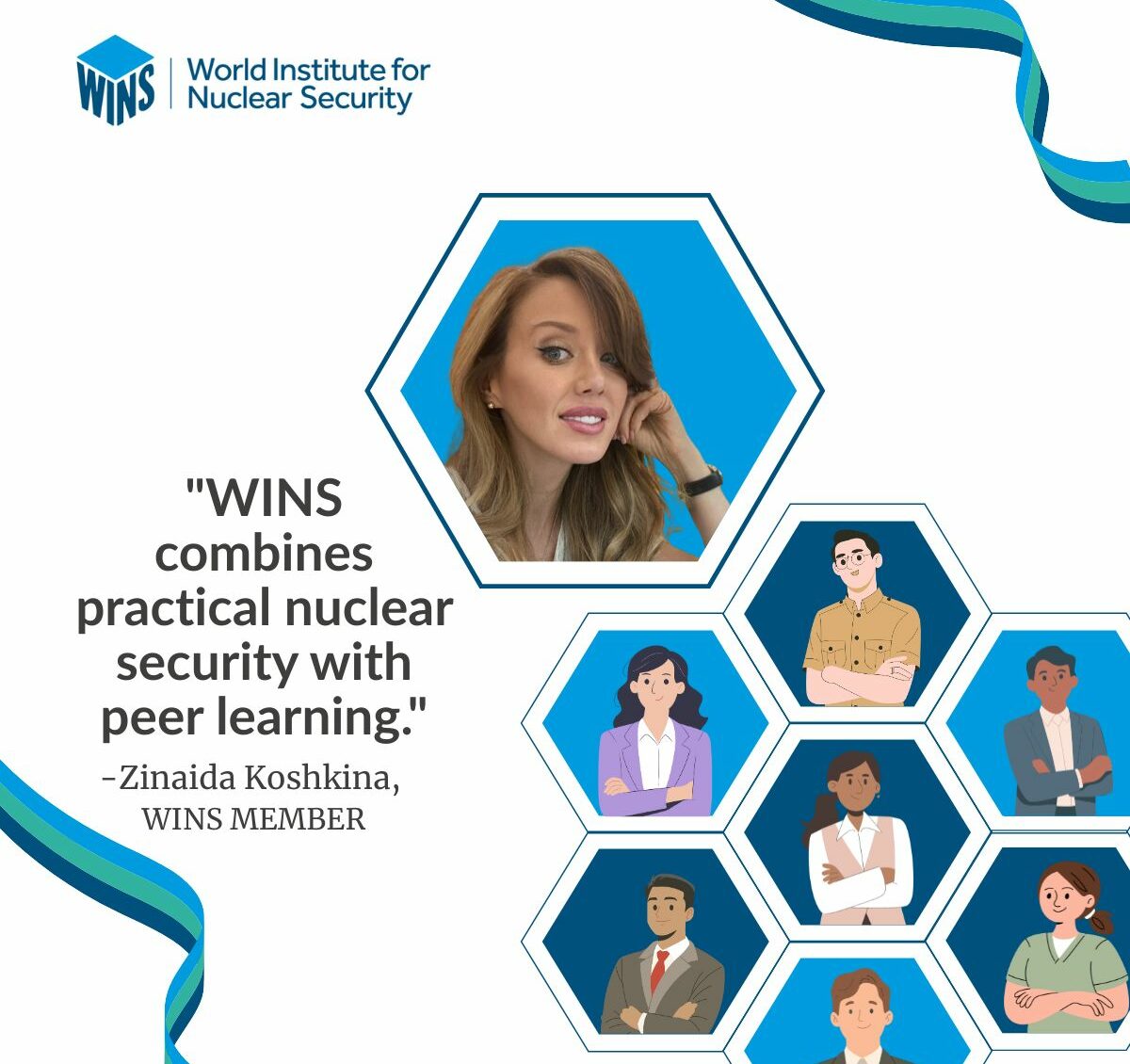WINS’ 10,000 members represent more than a number — we’re a global community of passionate advocates for competence and continuous improvement in nuclear security.
WINS Members are located in more than 170 countries and work in a variety of fields, but they share one purpose: strengthening and sustaining nuclear security. To celebrate the 10,000 member milestone, we’re spotlighting some of our recent new members.
Zinaida Koshkina is a Lead Engineer in the International Cooperation Department at SE “USIE IZOTOP.” She graduated with honours from the Sevastopol National University of Nuclear Energy and Industry, where she trained on a research reactor. Her past experience includes nuclear fuel handling, nuclear physics lab work, and external radiation monitoring at the Zaporizhzhia Nuclear Power Plant.
Can you tell us a bit about your role at Izotop and what inspired you to pursue a career in nuclear engineering?
I am a Lead Engineer in the International Cooperation Department at SE “USIE IZOTOP.” I prepare and format documentation for international partners, assist with technical and analytical reports, and help assemble evidence and records for IAEA inspections and missions. I coordinate communications so that documents are complete, consistent and on time.
I chose this field out of a love for chemistry and with formal training at the Sevastopol National University of Nuclear Energy and Industry, where we trained on a research reactor. My father is a Chernobyl liquidator honoured for his service, and his example shaped my respect for nuclear safety. Work in nuclear safety and radiation monitoring at the Zaporizhzhia NPP gave me a rigorous and systems-oriented mindset.
“WINS combines practical nuclear security with peer learning.”
What motivated you to become a member of WINS? How has WINS membership contributed to your development?
WINS combines practical nuclear security with peer learning. The WINS Academy and the community provide case studies and direct exchanges that improve my approach to transport security, insider threat prevention, governance and performance-based oversight. Last year I had the honour of taking part in a workshop sharing Best Practices for the Secure Transportation of Radioactive Material, and its lessons inform my daily work.
“WINS connects you to practitioners who share real solutions.”
In your view, what role do organisations like WINS play in facilitating information exchange across borders?
They make experience usable. WINS curates benchmarks and real cases that others can adapt, and it offers a trusted forum for experts to share what works.
What would you say to professionals in Ukraine or globally about the value of joining WINS?
WINS connects you to practitioners who share real solutions. You get credible guidance, a trusted network, and continuous development that stands up in the field.
What advice would you give to young women who are considering a career in nuclear science or security?
Start by owning your fundamentals. Chemistry, physics, mathematics, and the language of regulations will be your daily tools.
Say yes to the work that keeps people safe, including documentation, quality assurance, transport planning, and dose optimisation.
Build your network early. Join technical societies, look for mentors, attend international courses, and ask questions.
It is normal to feel not ready. Step in, learn fast, and let responsibility grow your confidence.
